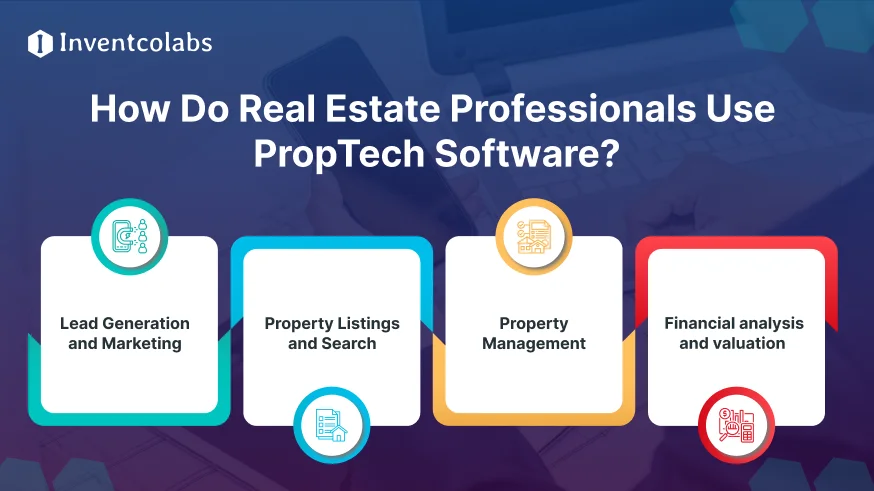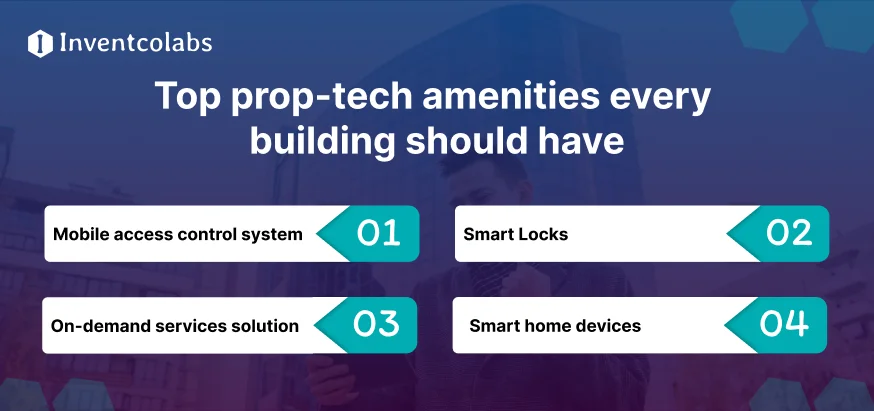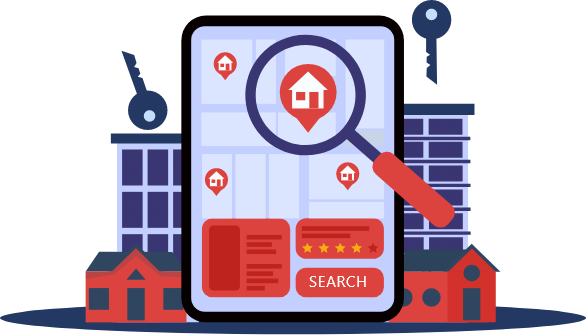From the pre-PropTech era to the advent of current property management technologies, the real estate industry underwent a remarkable transformation. The pre-PropTech phase had restricted access to data and overwhelming manual procedures. Market insights were limited, resulting in inefficiencies across property management processes.
Contrastingly, in the current scenario, a new era of data abundance and automation has arrived. Today’s real estate PropTech software can provide us with real-time insights and streamlined operations across the real estate industry. Stakeholders can now leverage analytics for the efficiency of real estate usage, sale, and leasing, replacing traditional and inefficient methods.
PropTech property management advancements have the potential to impact the real estate sector in several ways positively. In addition to being a profitable route for investors, millions of buyers, sellers, and landlords are benefiting from tools that are making real estate transactions easier.
This article aims to provide you with all the details related to PropTech, its types, future scopes, challenges, and opportunities that are associated with it.
What are the types of PropTech?
For better clarity about PropTech, here is a brief explanation of the types of PropTech.

Construction technologies
Through robotics, 3D printing, modular construction, and other architectural applications, PropTech property management has impacted building processes since it entered the real estate market. It also shortens building schedules and improves rapid design iterations. The enhancement of accuracy and efficient use of resources results in lower expenses.
Smart Home technologies
Proptech software development has spread its branches towards smart home technologies as well. It allows the residents to control different aspects of their homes remotely, strengthen security, and optimize energy consumption. It also strengthens security by real-time monitoring.
Property management platform
Proptech can be an absolute game changer in the field of real estate industry. These systems automate property management including rent collection, maintenance requests and communication. The user-friendly interface of this Proptech software can monitor all financial transactions and manage properties with ease.
Read more: How To Develop An Apartment Management Software – Features & Cost
Real Estate Fintech
In the field of real estate PropTech, it is important to have open transactions between the buyers and the sellers. Blockchain technology is leading the charge in this change, which reduces the possibility of fraud while also providing record security and accuracy.
Why has PropTech become so important?
Here are some of the inefficiencies that property developers deal with daily:
- involvement of several middlemen in every transaction (banking, real estate, and insurance
- information asymmetry in marketplaces, construction efficiency, and almost every other area of the company
- lengthy and laborious legal negotiations
- in-effective property management systems
- in-efficient management of large databases

The point is that there are many challenges when attempting to transform such labor-intensive methods into a more efficient digitized way.
What are the benefits of PropTech?
There are multiple ways through which PropTech software development can benefit the real estate industry. It is not only considered one of the lucrative paths for investors, but the new tools that are introduced through PropTech are helping millions of sellers, buyers, and landlords to improve their property journey.

Increased Innovation in the real estate market
We’ve heard about how quickly PropTech is gaining traction in the market. However, there’s more: big data may provide the knowledge and information needed to make well-informed decisions, which increases the viability of purchasing and selling more real estate. Big data, data analytics, and sensors allow the real estate industry to innovate more. This is also the primary cause of the recent rise in investments in PropTech real estate.
More Transparency
Particularly, new technologies that increase transparency include blockchains and big data. People may easily track their real estate transactions with the use of several tools. Greater openness is feasible since all parties involved will be able to see every transaction. The creation of the Global Real Estate Transparency Index comes as no surprise.
Enhanced Promotion
Property managers may use technology to help with a variety of issues, such as finding renters and marketing a property. Real estate brokers are now able to market an existing home or an impending construction through the proliferation of 3D virtual tools, which range from floorplans and galleries to online tours. These are tools for architects that can quickly turn a hand-drawn floor plan into a 3D model.
Better Communication
To improve communication between landlords and renters, a lot of PropTech startups concentrate on building messaging systems. Many of these websites and apps also give users access to report claims. As a result, although owners can personally answer queries from renters, property managers can post pertinent information about the property on a whiteboard.
Higher value
In the end, each of these situations has the potential to raise a real estate’s worth and raise rental returns. A real estate building is likely to be perceived as superior quality and valued more than those without such technologies. The real estate industry may be greatly impacted by various PropTech applications. The mixture of them is what gives them strength and extra worth.
What are the challenges of PropTech?
- Obstacles related to regulations and compliance pose serious problems for PropTech in real estate. Technology is always changing, and laws are frequently not kept up with it, which leads to ambiguity and makes implementation difficult. Since the gathering and processing of sensitive data is essential to real estate operations, compliance with data protection and privacy rules becomes even more important.
- Furthermore, it might be difficult to navigate the licensing and permission procedures for developing technology. Cooperation between the technology and real estate industries is required to overcome these obstacles, as well as proactive interaction with regulatory agencies. Real estate IT solutions must strike a balance between innovation and compliance to advance the sector and satisfy legal requirements.
- Integrating real estate technology solutions successfully requires overcoming adoption hurdles. Professionals in the field who are resistant to change are one of the main obstacles. Programs for raising awareness and educating people about the advantages of technology and its potential to improve productivity and competitiveness can help overcome this obstacle. Expenses can also be a major obstacle, especially for startups.
- Financial concerns can be allayed by providing scalable and affordable solutions and a clear return on investment. To enable smooth integration, the real estate sector has to overcome problems with compatibility and interoperability across various technological platforms. To break through these obstacles and promote the widespread use of real estate technology, cooperation between technology suppliers and industry stakeholders is imperative.
To advance real estate technology solutions, cooperation and ecosystem formation are essential. Collaboration between technology suppliers, real estate agents, investors, and regulatory agencies may build a strong ecosystem. This ecosystem makes it possible to share information, skills, and resources, which produces creative answers to problems facing the sector. To ensure the smooth integration of real estate technology, collaborative initiatives promote the creation of interoperable platforms, data standards, and best practices.
The development of ecosystems also promotes funding and investment options, which helps technology businesses expand and become more scalable. Stakeholders may influence the acceptance and application of revolutionary real estate technologies by banding together, eventually determining the direction of the sector.
What are the future trends of PropTech?
There are many opportunities and potential future trends for the real estate business due to technology integration. The experience of seeing homes is revolutionized by virtual and augmented reality, which lets prospective purchasers inspect houses from a distance. Property transactions may now be conducted with greater efficiency, security, and transparency thanks to blockchain technology.
Data-driven insights for improved decision-making and predictive analytics are made possible by artificial intelligence and machine learning. Intelligent houses and buildings with improved automation and energy management are made possible by the Internet of Things (IoT). Green and sustainable technology is becoming more and more popular, encouraging eco-friendly behavior. Better infrastructure and a higher standard of living are other promises made by the emergence of smart cities and urban planning strategies. The prosperity of the real estate sector in the future will depend on how well it seizes these possibilities and keeps up with emerging trends.
How Do Real Estate Professionals Use PropTech Software?
Nowadays, Real Estate professionals are using PropTech software in various ways and trying to get the best out of it. They are using these PropTech software to improve their productivity, customer service as well as efficiency. Here are some of the most common ways where PropTech software can be used in the real estate industry:

Lead Generation and Marketing
PropTech can be the ideal tool for developing customized advertising in the current digital era. Create leads, then follow up with each one of them along the sales funnel. PropTech can assist real estate agents in managing their CRM systems, tracking lead activity, and creating customized email drip campaigns.
Property Listings and Search
It can also help you create as well as manage all the property listings and facilitate the property search. For instance, real estate agents can easily get more traffic by using PropTech software to list properties on multiple websites and create virtual tours.
Property Management
Nothing is better than employing PropTech software if you’re searching for the instruments to handle the daily operations of all your rental properties. Property managers may utilize it to handle maintenance issues, get in touch with renters, and collect rent.
Explore more: How to Develop A Rental Marketplace App – Cost and Features
Financial analysis and valuation
Analyzing all of the financial data and property values is the best method to use the PropTech software. Real estate brokers, for example, may evaluate the properties’ investment potential, analyze comparables, and create CMA reports using the PropTech program.
Top prop-tech amenities every building should have
Here are some of the top PropTech amenities that every building should have:

Mobile access control system
This real estate PropTech control system allows the residents to use their smartphones to unlock the doors, access all their units, and enter common areas. It is quite a convenient and secure way to manage all the access, and this can also help improve the security of the building.
Smart Locks
Smart locks can be controlled remotely by the use of a tablet or smartphone, and they can also be programmed to automatically unlock while a resident approaches their door. It is another secure way to manage access, and this will also help prevent unauthorized entry by any outsider. From security concerns, PropTech tech has brought revolution to the real estate industry.
On-demand services solution
A PropTech software enables locals to schedule various services, including cleaning, pet care, and dry cleaning, all through websites or mobile apps. For those who are time-constrained, it may be a very useful amenity.
Read more: How Much Does It Cost to Create a Real Estate Mobile App?
Smart home devices
In addition to monitoring energy usage, all of these gadgets may be used to control lights, thermostats, and other appliances. Residents may lower their building’s environmental impact and save money on all of their utility bills with real estate PropTech software development solutions.
Tips for investing in PropTech
Given how ready technology is to get into the real estate market these days, investing in PropTech might prove to be a profitable choice for you. But before you consider making a PropTech investment, you must conduct your research. Here are a few pointers for prop-tech investment: You need to gain more insight into the PropTech industry before you embark on your investment path. Investigate the many prop-tech industry sectors and the businesses that support and run them at your own pace. Once you have identified where you are willing to invest, conduct thorough due diligence on that company. It includes doing thorough research on the financial and market position as well as the management team of the company.

Conclusion
Switching to PropTech comes with more pros than cons, along with other exposures in the real estate sector. We must embrace the technology that ensures the provision of good benefits and helps take the standards of the real estate market to a whole new level. PropTech has the unquestionable potential to revolutionize the real estate sector, notwithstanding its obstacles. We can create a future where technology empowers players throughout the whole real estate ecosystem and creates a more effective, transparent, and sustainable built environment for all by embracing innovation and tackling important concerns.
FAQs
Q. How can real estate professionals stay updated on PropTech trends?
ANS. Keeping up with PropTech developments requires reading trade journals regularly, attending webinars and conferences, participating in industry discussion boards, and networking with other experts in the field.
Q. Is PropTech applicable to residential and commercial real estate equally?
ANS. Yes, both residential and commercial real estate may benefit from PropTech. Although unique objectives may dictate different solutions, increasing productivity and improving user experiences.
Q. How does blockchain technology impact PropTech?
ANS. Blockchain technology improves real estate transaction speed, security, and transparency. It may decrease fraud, simplify complicated procedures, and expedite operations like real estate transactions.
Q. Are there any ethical considerations in the use of PropTech?
ANS. Indeed, ethical issues play a significant role in the creation and use of PropTech. These involve concerns about data privacy and responsibly using AI.
Q. How can businesses overcome resistance to adopting PropTech solutions?
ANS. Educating people, presenting success stories, and highlighting concrete advantages like cost savings, increased productivity, and improved customer experiences are all important strategies for overcoming reluctance to adopt PropTech software. A more seamless transition to PropTech solutions may be achieved by including stakeholders early in the process and resolving their concerns.



